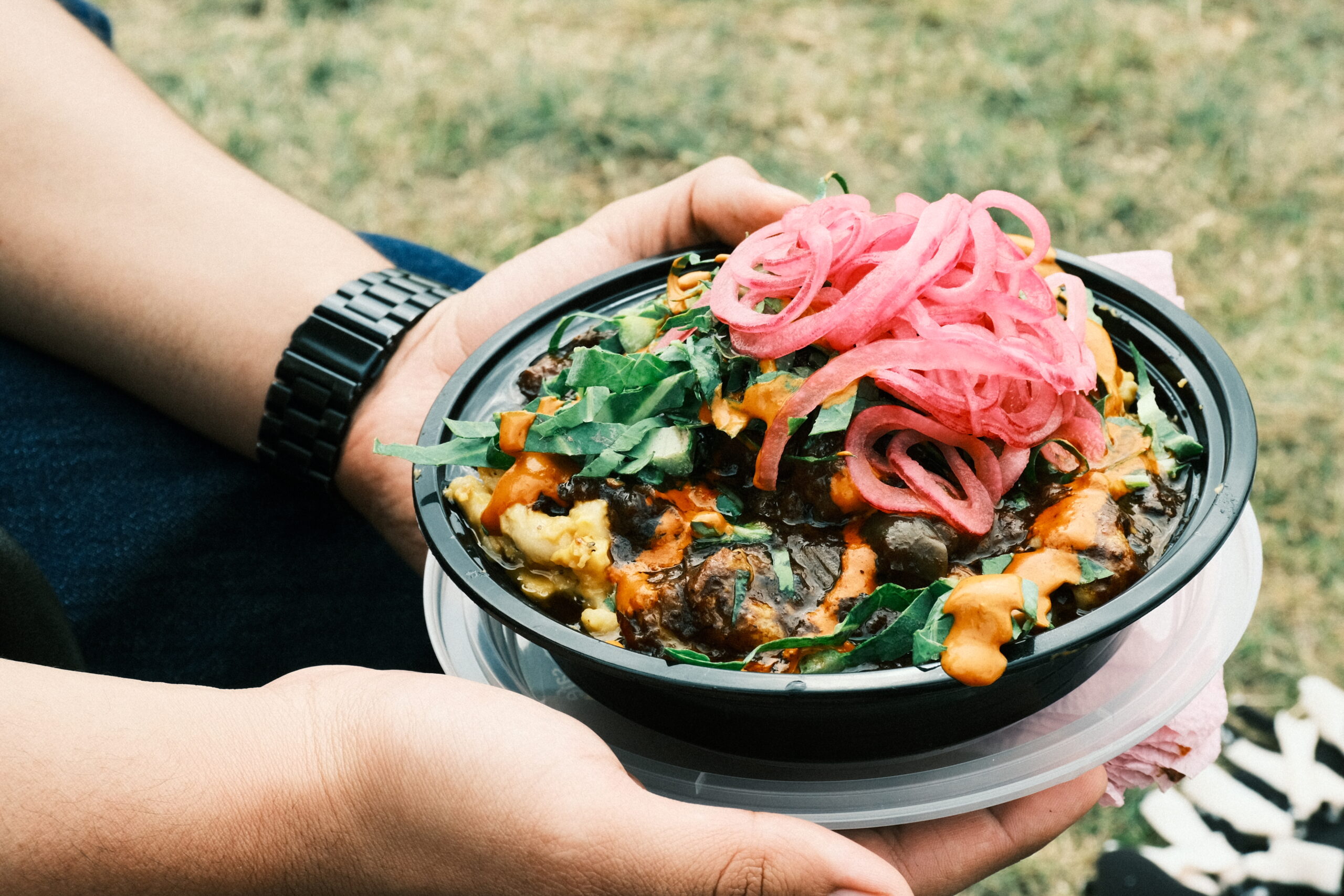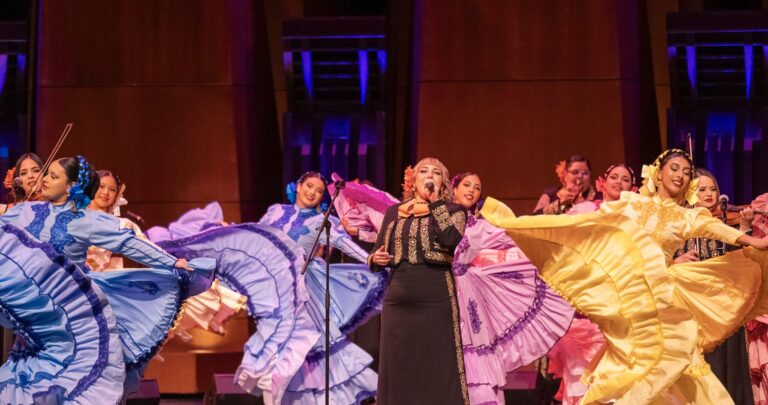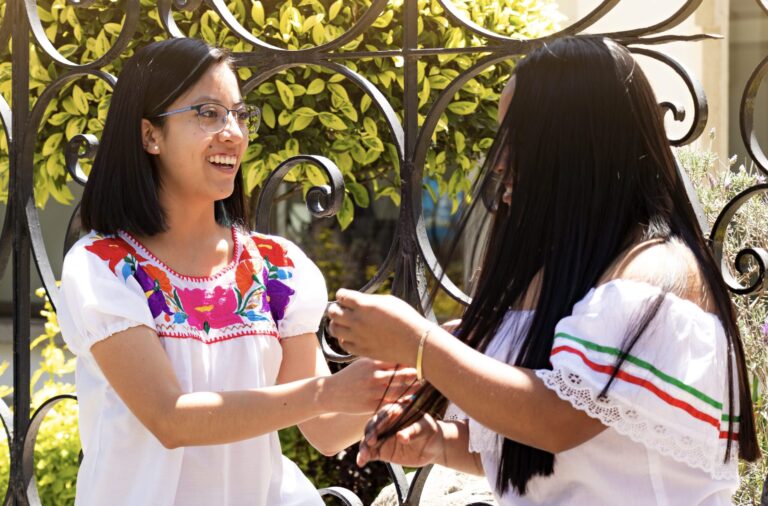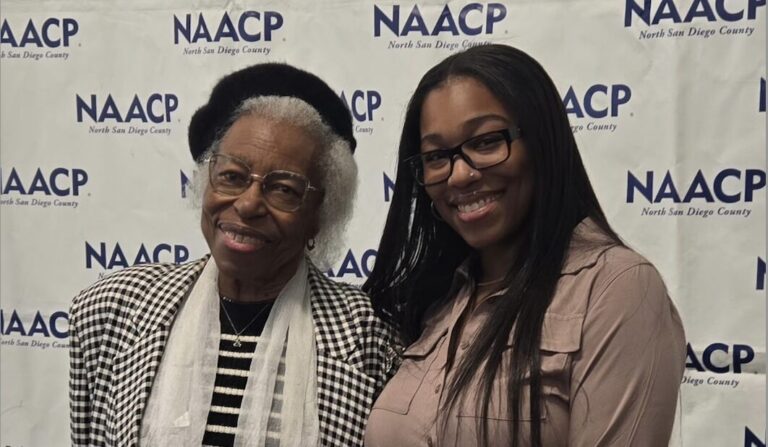By Diego Orozco

Even when I’ve felt far from my roots, there’s one place I always feel at home—my mom’s kitchen. Her cooking brings me back to who I am. That’s why events like Latinx Heritage Month and Juneteenth matter. They give people room to feel proud and safe, reliving many of the same flavors that have supported them through life.
“When young people connect with their ancestors and land, food helps them feel grounded,” says Tammah Watts, a mental health counselor at MiraCosta College. “Without traditional meals, that connection can feel incomplete.” Her words make me think about Latinx Heritage Month. Growing up Afro-Latino in North County San Diego, I’ve often felt there were certain areas where I didn’t belong. Have I been true to myself? Have I let all parts of my identity shine?
Cultural heritage events should include many voices in the planning stages, says Watts. From Hispanic-Serving Institution Week to Undocumented Student Action Week, food helps make space for everyone. It brings people in, reminds them they matter, and shows that identity can be celebrated in many forms.
Watts talks about identity and how it connects to food. “Intersectional and multiracial identities are core aspects of each person’s Self, the most impactful being whether or not they are affirmed and seen as their truest selves,” she says. That hits home. We all want to feel accepted for who we are. In fact, we all need to—it’s a part of our human nature. And food can help us get there.
Food is “essential and demonstrates respect, acknowledgement, and welcoming and belonging,” says Watts. That sense of belonging—of being invited and included—isn’t just nice. It’s necessary. It’s healing.
Food and Identity
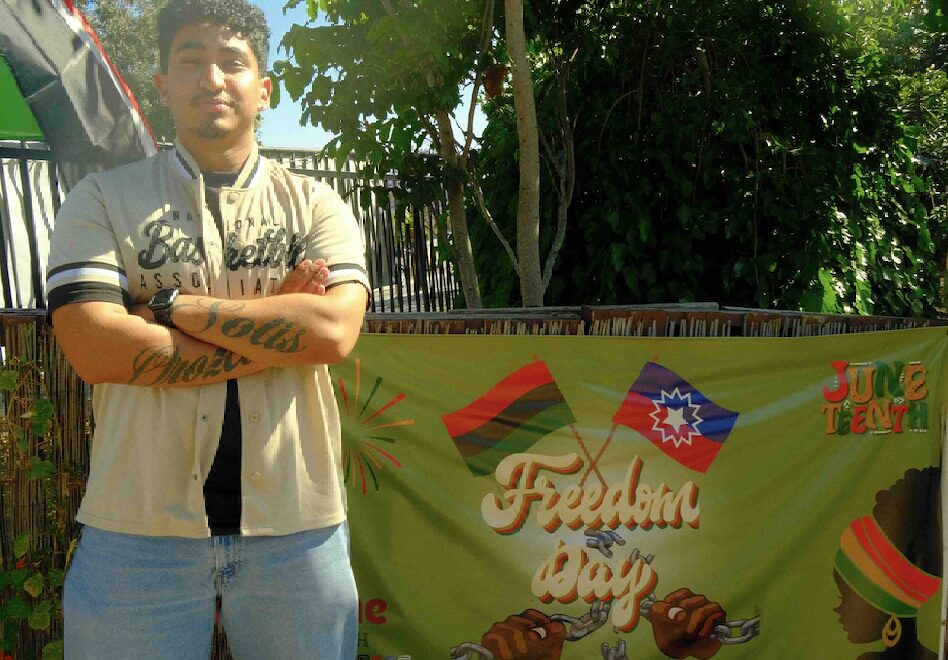
When I walked into the 619 Day Juneteenth celebration in San Diego, I could feel the love right away. Music filled the air; people danced and laughed. Families of all backgrounds came together, packing the street lined with vendors. It was lively, joyful, and full of energy. Kids ran around, playing without a care in the world.
That small moment—children feeling safe and free—meant more than I realized. There have always been lines between groups—by race, money, or how you acted. But here, those lines disappeared. I didn’t even realize I’d forgotten the feeling of community until I saw it in front of me.
Immediately, the smell of food pulled me in.
From smoky BBQ to street tacos to dishes that blended cultures, each food booth told its own story. Food wasn’t just something to eat—it was a way to show pride, heritage, and connection. Each plate was a piece of culture. It reminded me how powerful food can be in showing who we are and where we come from.
It’s impossible to appreciate Juneteenth fully without knowing its origin. A day that honors freedom, Juneteenth marks the moment in 1865 when the last enslaved people in Texas learned they were free—two years after slavery had officially ended. Today, it’s also a celebration of Black strength and culture. For people with African roots, or who hold more than one culture, it’s a time to feel seen and valued. With the Black and African community’s powerful, resilient, and complicated history, it’s beautiful to see people keeping in touch with themselves.
Still, identity can be tricky. I often wonder—am I “Afro” enough? Am I “Latino” enough? That day, surrounded by music and meals, I felt I could just be me.
Some people feel they don’t fully fit into one culture. Maybe they were raised far from their family’s traditions. Maybe they speak a different language. Maybe their cultures mix in ways that aren’t easily understood. That’s where food plays a huge role.
A single dish can remind someone they belong—even if they’re just beginning to figure that out. Food isn’t just about what’s on the plate. It’s about connection. It’s about story. It’s about saying, “You belong here.” In a world that often asks us to choose just one side of who we are, food says the opposite. It says, “Come as you are.” That message is priceless beyond words, especially in a world where it often costs to be yourself.

